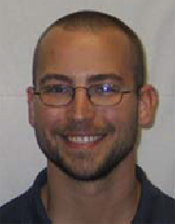Visitors to UMass Medical School’s sixth annual Complementary and Integrative Therapies Expo and Lecture Series, taking place from 3 to 6 p.m. on Wednesday, April 2, will have the opportunity to speak with local practitioners and receive treatments at no charge to personally experience therapies that are becoming increasingly integrated into modern medicine.
In addition, six half-hour lectures are scheduled.
Exhibits and demonstrations will be in the old Medical School Lobby and Faculty Conference Room, and lectures will be presented in Amphitheatre I.
Free and open to all, the expo and lecture series are sponsored by members of the Complementary and Integrative Medicine Elective, the Integrative Health Academic Interest Group and the Department of Psychiatry, with support from the Motivact Group and Spirit of Change magazine.
For more information, contact Michael Williams at Michael.Williams1@umassmed.edu or view the event flier and lecture schedule online. To learn about why Williams is among a growing number of health care practitioners who are embracing complementary and integrative medicine, see below.
Why study complementary and integrative medicine? A medical student speaks
 Eight years ago a close friend of mine was battling cervical and endometrial cancer and sought out other treatment modalities when doctors recommended more radiation and chemotherapy. She attributed a lot of her healing to a traditional Chinese physician, changes in her nutrition and other integrative modalities like acupuncture, reiki and meditation.
Eight years ago a close friend of mine was battling cervical and endometrial cancer and sought out other treatment modalities when doctors recommended more radiation and chemotherapy. She attributed a lot of her healing to a traditional Chinese physician, changes in her nutrition and other integrative modalities like acupuncture, reiki and meditation.
Her story piqued my interest, so I decided to take what was then called the Complementary and Alternative Medicine (CAM) Elective. I was particularly impressed with the positive nature of those practicing what we now call complementary and integrative medicine (CIM). The people drew me in, but what has kept me interested is my desire to see mainstream allopathic medicine use the best therapies regardless of their origin or nature. I want mainstream medicine to integrate CIM modalities that help patients, and that often have fewer adverse side effects than traditional therapies.
My own first attempt to integrate CAM into mainstream medicine was to change the name of the student elective to the Complementary and Integrative Medicine Elective. The word “alternative” only serves to distance these therapies from being even considered by mainstream practitioners. It can’t be about CAM versus mainstream medicine because patients will be the ones losing out on the best treatment plans.
I believe the resistance to integration stems from lack of enough acceptable research, lack of education of physicians and other practitioners, reduced or no health insurance coverage for “CAM” therapies and various biases. I don’t think all such therapies should be integrated because I don’t think all work well enough or are safe enough, just as I don’t think all mainstream therapies should be used because they don’t all work well enough or are not safe enough. In my opinion, the answer to a safer, more effective, more cost-effective health care system is preventive and integrative medicine.
--Michael Williams, MS3
Michael Williams, MS3, is the lead organizer of the 2014 Complementary and Integrative Therapies Expo and Lecture Series.